- Home
- Darrell Maloney
The Yellowstone Event: Book 6: The Aftermath Page 7
The Yellowstone Event: Book 6: The Aftermath Read online
Page 7
If the plane hadn’t crashed with both parents aboard they would have likely suffered very painful deaths within just a few years anyway.
Gell had plenty of women who would have loved to have married him.
But he had a hard time trusting them.
Many of them wanted children.
Some bad enough to ignore his desire never to be a father.
Some, he feared, would try to conceive despite his wishes and would carry on the family curse.
He’d decided early on to remain a lifelong bachelor.
With his wealth he’d never long for a sex partner; or for companionship.
But without a wife and family, he had pretty much nothing to spend his money on.
And no one to leave it to when he died.
Oh, he could hoard it as most rich people do.
And he could leave it all to charity when he died.
But then he wouldn’t be able to see the good it would do.
He’d never meet the kids with cancer whose lives he’d save.
He’d never get to christen the new medical center or library wing he bought and paid for.
The solution was to become a philanthropist. To be a permanent giver to charities. A permanent doer of good and expensive deeds.
As such, footing the bill to sponsor a few dozen Atlantic crossings wouldn’t hurt him in the least.
That… footing the bill for much of the trans-Atlantic movement of Yellowstone refugees, would have marked him as a patriotic hero in itself.
But he had much more planned.
He’d already given David Whittle, the CEO of Midway Cruise Lines, the okay to help David Rodriguez in another big way as well.
Chapter 20
“Mr. Charleston, this is David Whittle from Midway Cruise Lines. You’re a very hard man to get in touch with.”
“Hello, David.
“Yes, I suppose I am. We’ve been quite busy here lately, trying to meet the deadline for submitting our trans-Atlantic bid.”
“I see. Well, that’s what I wanted to talk to you about.”
“Talk away, David. But first humor me a bit and clear something up for me. I’ve been hearing some really crazy rumors that your line is donating your services to DHS free of charge.
“Tell me they’re nothing more than that… just ridiculous rumors. After all, doing such a thing would be sheer lunacy.”
“Well, I can certainly clear it up for you, but you won’t like the answer. The rumors are true.
“As for the lunacy part, we’d prefer to think of it as a once-in-a-lifetime marketing opportunity. And quite possibly our best chance to take your place at the top of the cruise industry.”
Charleston started to turn red and had to fight hard to control his anger.
“So, it’s just as I suspected.
“You’re doing this to use against us. To ruin us and put us out of business, or to at least weaken us so you can steal the bulk of our business.”
“Now calm down, Tom.
“We’re not doing anything illegal or unethical.
“And as for our marketing campaign, all we plan to do is tell the truth.
“All our commercials will do is inform the consumers about things they probably did not know.
“That when America was knocked to her knees and desperately needed help from the private sector, Midway Cruise Lines stepped up to the plate.
“While all our competitors were preparing their bids so they could charge eight hundred dollars a passenger or more from taxpayer funds, that we’d transport as many as we could for free.
“We’ll tell them we saw it as our patriotic duty as proud Americans to repay the people who’ve built us into the fourth largest cruise line in the nation.
“And we’ll tell them that when it’s time for them to get away on their next cruise we’d love the opportunity to serve them again.”
Charleston lost control of his tongue.
He practically yelled into the phone, “You son of a bitch! That’s economic blackmail!”
“No sir. That’s good business.”
Charleston slammed the phone down, but he wasn’t yet finished talking.
He ranted and cursed a blue streak for a full three minutes while alone in his office, every word directed at David Whittle.
Through his office door his secretary, as well as three visitors waiting to see him, blushed.
Two of the visitors decided it was a bad time and asked the secretary to reschedule.
Charleston picked up his phone again and asked his secretary to call the board together for an emergency meeting.
David Whittle was three states away in his own office, alone in his thoughts.
He couldn’t hear a word Charleston was saying about him, but had a pretty good idea what was going on.
He had a large smile on his face.
Three days later he got a call from David Rodriguez.
“I just wanted to thank you,” Rodriguez said.
Whittle played dumb.
“Thank me? For what?”
“For setting up the dominoes and then starting them to fall.”
“Why, David… I’m sure I don’t know what you’re talking about.”
“Oh, I’m quite sure you do, my friend. But just in case I’m wrong, I got a call from Imperial Cruises yesterday. They asked me to confirm you were moving passengers for us for free. I confirmed it and they offered to do the same.
“Then Dunaway Cruise Lines called and made the same offer.
“They were followed by Tom Charleston at Ultra Cruises, who by the way called you some pretty choice names. But he offered free movement as well.
“All in all, every one of them caved. Every one of them will provide free travel for Yellowstone evacuees.
“I know in my gut it was because of something you did. And while I don’t want specifics, I did want to thank you for your help.”
“You’re welcome, David. Glad to help.”
In any crisis situation heroes appear from the unlikeliest of places.
They’re still heroes nonetheless.
Chapter 21
Hannah was on the verge of tears.
Her voice was that of a frightened little girl.
She was almost begging now.
“Honey, I’m worried. Can’t we stop and rest for awhile? Or switch over to another highway? You’re so exhausted I’m afraid we’ll go over the side of the cliff.”
“Honey, if we go inland we might not get through. We wouldn’t have made it this far if it wasn’t for the coastal wind.”
They’d been held up in San Francisco as road crews worked desperately to keep the Golden Gate Bridge from collapsing.
Volcanic ash is heavy.
Very heavy.
The Highway Department ordered the bridge closed when its accumulated ash went over six inches.
Much more than that, they said, and they couldn’t guarantee it wouldn’t collapse under the combined weight of the ash and the cars traveling over it.
As much as they hated it, and as much as it backed traffic up on both sides of it, they closed the bridge for seven hours.
For every minute of those seven hours road crews used front end loaders to scoop up the ash one bucketful at a time and dump the ash over the side of the bridge into the bay.
Other workers with snow shovels cleared the pedestrian bridge in the same manner, and it was back- breaking work.
For while the ash may have drifted down like snow and looked like a gray version of snow, it was nothing like snow.
It was heavier than hell.
They were stuck in the traffic jam five miles south of the bridge with no way to exit, no way to turn around.
The only bright spot was it gave Melvyn and Tony a chance to get in a nap of a couple of hours.
Once the iconic bridge was reopened it took almost an hour to get over it. Vehicles were choking out to the right and to the left and very stupid people were abandoning them where they coa
sted to a stop.
By the time they got to the bridge it was down to one lane of traffic and more resembled an obstacle course as those with still-running vehicles dodged those getting in the way.
And they were among the lucky ones, for mere minutes after they cleared the bridge the highway department closed it a second time.
As they drove over the Golden Gate Hannah looked down into the bay and marveled.
She’d assumed the heavy ash would immediately sink to the ocean’s bottom.
And indeed much of it did.
Much more of it floated instead, and created a thick and sickeningly gray muck which rolled with the incoming tide, muting its waves and looking more like tar than water.
Gwen, following a quarter mile behind them with Melvyn driving their own RV could no longer watch. She’d already retreated to the back of the RV and drawn the curtains. Now she was trying her best to keep her mind occupied by reading a book.
That in itself was a monumental task.
She could feel the wheels slipping and sliding beneath them in the slippery ash.
Knowing they were on a coastal highway with steep cliffs to the west made an uneasy feeling so much worse.
The next morning they were on the Oregon Coast Highway, near Meyer’s Beach.
The ash fall on the roads here was less treacherous, because an almost constant westerly wind came off the water and blew most of it inland.
The tradeoff wasn’t a good one.
One would think the dry ash wouldn’t be slippery, but it was.
And there were parts of the highway where only a galvanized steel guard rail separated the big RV from a drop down a sheer two hundred foot cliff into the rocky shore of the Pacific.
It wasn’t just the Golden Gate bottleneck that had slowed them down.
They were following FEMA’s instructions coming over the radio.
Every fifty miles they were pulling over where there was a chance to do so, and stopping dead in their tracks when there was no shoulder.
Each time they stopped Tony climbed on top of the RV with a broom and swept off the ash which had accumulated since their last stop.
Too much ash would collapse the roof, FEMA was saying.
Tony hated going up there. It was slippery and hard to breathe.
But he was younger than Melvyn, and therefore lighter and more nimble.
Melvyn had his own task to perform during the frequent stops.
He was opening up the hoods of the RVs, removing the air filter, and beating them against the side of the vehicle.
If he didn’t do that often and earnestly the filter would soon become so clogged no air could pass through it.
It was slow-going and treacherous.
But if there was one bright spot to be had it was that they were finally outrunning the falling ash.
At its highest point, just north of Los Angeles, Tony was sweeping off an inch of ash every fifty miles or so.
Now it was less than half that.
Tony had his doubts earlier.
But now he was convinced they were going to make it.
Chapter 22
Rocki described it best when she said, “This is like walking through the slippery slopes of the mountains of hell.”
And while she certainly couldn’t know that for sure, because she was one of the best people Darrell had ever met and surely heaven-bound, he could think of no other words which might better describe the journey they were taking.
The slippery gray muck beneath their feet wasn’t dry, as it was for most of the continent.
Here, closer to ground zero, it fell from the sky and passed through vast clouds of steam before it settled back on the earth.
The steam moistened it; made it heavier; made it stick to their clothing and to the strips of cloth they used to cover their faces.
It had a mud-like consistency which made it difficult to travel. It stuck to their shoes and they wanted more than anything to kick their feet frequently to knock it off.
The problem was there was no place to do so. They were in a vast ocean of mud where the stuff was everywhere.
They were scant prepared for such a journey.
There was absolutely nothing to protect them from the ash-mud. They found it best to wrap an arm just over their eyes, then to flail the arm wildly every few minutes to rid it of the fallen crud.
The problem was, the crud made the arm quite heavy and quite painful, and they had to switch arms each time. After awhile both seemed to want to fall off and they were in constant pain.
And it wasn’t just their arms.
Anyone who’s walked any distance on a sandy beach knew how it tired out one’s legs. Exhausted them, really, in a very short amount of time.
The distance traveled, whether it be a soft beach or the gray world of an ash fall, just isn’t worth the time and effort and pain one puts into it.
For two days they’d trudged through the mess, traveling an hour or so, then resting another hour.
They seemed to take turns, convincing the other to keep moving despite the pain.
First Rocki would want to give up. To just lie down and die and end her misery. It would be up to Darrell to convince her as bad as it was they had to keep moving. For there was a better place somewhere up ahead.
Then, a few minutes or hours later, it would be Darrell’s turn.
“We don’t know how big this thing is,” he’d say. “I don’t want to crawl out of it and find it killed everyone we know, everyone we love. I’d rather just die right here and now, without ever knowing.”
“No, you wouldn’t,” Rocki would counter. “You know darned well those chitlins are crying their eyes out each and every day, waiting for us to get word back to them we’re okay. And we’re not gonna let them down. We’re just not.
“The boss has spoken, and that’s that.”
“Who made you the boss?”
“I’ve always been the boss. You made me the boss by catering to my every whim, giving me everything I wanted.
“But you finally screwed up, mister. After all these years of giving in to me, giving me everything I wanted, you gave me something I didn’t want.”
She waved a hand in front of them as a way of explaining her claim.
“You gave me this crap. I don’t want it, I don’t like it and I certainly don’t need it.
“You need to be punished for giving it to me, and since I can’t spank you I’ll punish you in another way. I’ll punish you by making you stay alive to lead me out of here and to safety. That’s your punishment. Even though you want to just lie down and die I’m not gonna let you do it.”
Her funny banter was starting to falter. That was the first sign Darrell had that she might not make it.
But he was up to the task of keeping her alive, he was certain of it.
He wanted to point out to her the irony of her own words. That she’d as much as told him staying alive with her was worse than death. He found humor in that, and under normal circumstances she would have too.
In her present state, he wasn’t so sure.
He resolved, then and there, that if it took his very last breath he’d get her to safety.
She’d been his hero. Now it was his turn to be hers.
Chapter 23
It was hard going for them. Had they been younger and in better shape they might not have had to stop as often to catch their breaths and cough ash out of their lungs.
In the weeks and months ahead they’d learn of a new condition being reported by thousands of survivors.
The doctors would call it “ash pneumonia.” It would be a severe problem of respiratory distress similar to pneumonia, but caused by the constant inhalation of ash into the lungs.
Like pneumonia, it would cause the buildup of fluid in the lungs.
Like pneumonia, it would cause a severe infection.
Like pneumonia, it would take a lot of lives, mostly those who were very young or very old, or those with existing res
piratory difficulties.
Later on doctors would maintain that a key preventive measure would have been to be extra cautious in the early days.
Extra cautious to stay indoors or under cover until the ash finished falling.
Extra cautious after the fall was complete not to stir it back up any more than one had to.
Extra cautious to keep from breathing the ash in any more than one had to.
“If only people had been more careful in the early days,” doctors would say later, “Many lives would have been saved.”
All that would come later. It would be the medical equivalent of Monday-morning quarterbacking.
For now, just a few days after the eruption, with ash still falling heavily, survivors weren’t thinking about the long-term consequences of their actions.
They were more concerned with surviving the next hour, seeing the next sunset.
And hopefully the next sunrise as well.
For Darrell and Rocki, trudging south along a deserted highway several hundred miles from ground zero, they were focusing on something even more minute.
Rocki was counting her footsteps as she pounded each boot into eight inches of ash.
“Eighty four… eighty five… eighty six…”
It was a habit she’d had all her life.
Someone once told her it was a symptom of Obsessive Compulsive Disorder.
She wasn’t so sure of that, since she’d never been diagnosed with OCD. She was irked when things didn’t line up all nice and neat, but wasn’t unreasonably upset about it.
Since she’d been a small girl she played games with herself when she was bored or lonely. She counted things because it seemed to chase the boredom away; to help kill the monotony.
In this case she told herself that if she could stumble along another hundred steps she deserved to take a break. She’d stop to rest for two or three minutes, then stumble another hundred steps to earn her next break.
There were other nuances to her game as well.
After five hundred steps… on her fifth break, she’d hold her breath, remove the makeshift mask from her face, and reward herself with three sips of water.

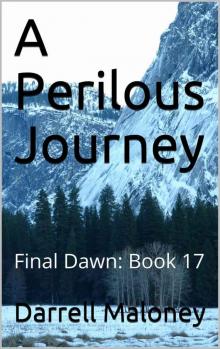 A Perilous Journey
A Perilous Journey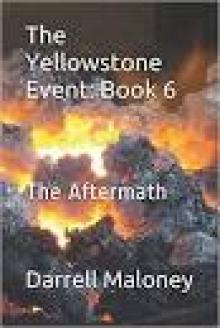 The Yellowstone Event: Book 6: The Aftermath
The Yellowstone Event: Book 6: The Aftermath Eden Bound
Eden Bound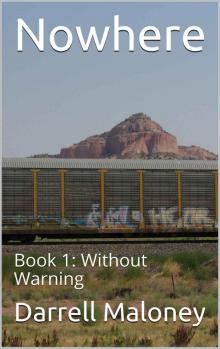 Without Warning
Without Warning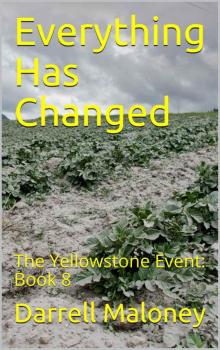 Everything Has Changed
Everything Has Changed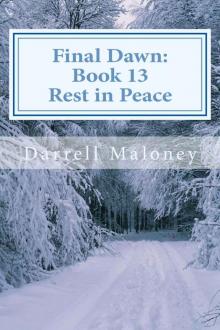 Rest in Peace
Rest in Peace This Changes Everything
This Changes Everything The Final Chapter
The Final Chapter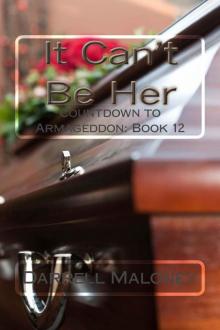 It Can't Be Her
It Can't Be Her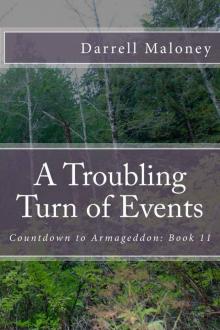 A Troubling Turn of Events
A Troubling Turn of Events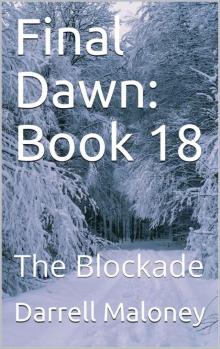 The Blockade
The Blockade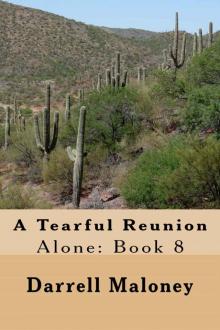 A Tearful Reunion
A Tearful Reunion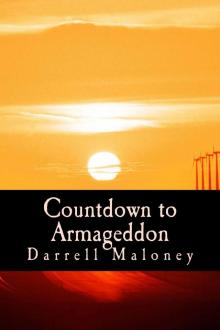 Countdown to Armageddon
Countdown to Armageddon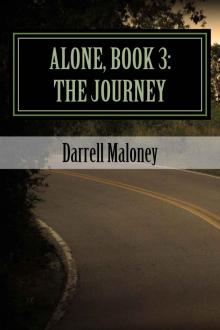 Alone, Book 3: The Journey
Alone, Book 3: The Journey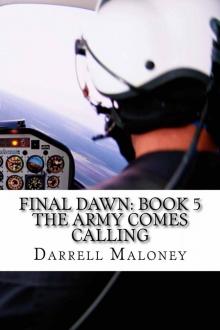 The Army Comes Calling
The Army Comes Calling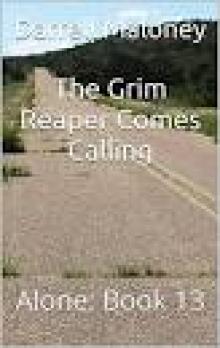 The Grim Reaper Comes Calling
The Grim Reaper Comes Calling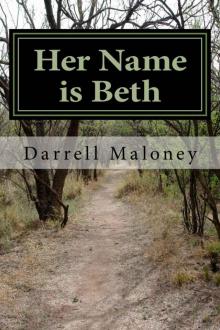 Her Name is Beth: Alone: Book 5
Her Name is Beth: Alone: Book 5 Red: The Adventure Begins
Red: The Adventure Begins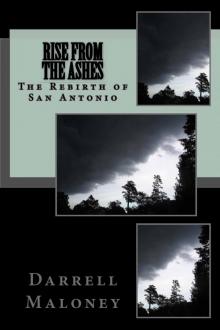 Rise From The Ashes: The Rebirth of San Antonio (Countdown to Armageddon Book 3)
Rise From The Ashes: The Rebirth of San Antonio (Countdown to Armageddon Book 3)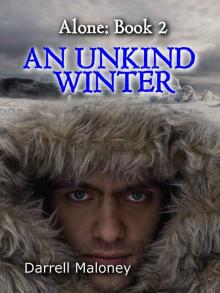 An Unkind Winter (Alone Book 2)
An Unkind Winter (Alone Book 2)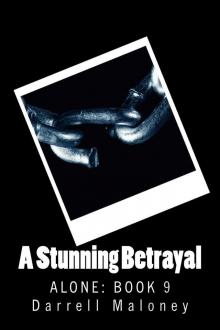 A Stunning Betrayal: Alone: Book 9
A Stunning Betrayal: Alone: Book 9 A Whole New World: Ranger: Book 2
A Whole New World: Ranger: Book 2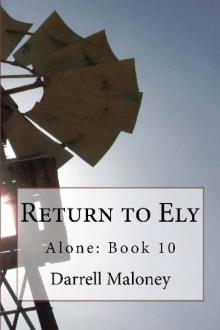 Return To Ely
Return To Ely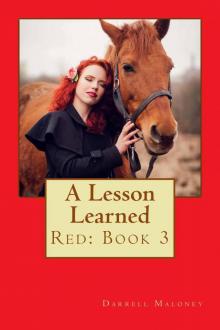 A Lesson Learned: Red: Book 3
A Lesson Learned: Red: Book 3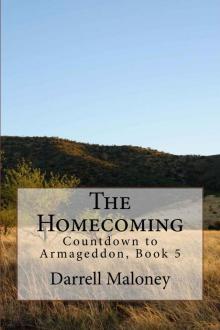 The Homecoming: Countdown to Armageddon: Book 5
The Homecoming: Countdown to Armageddon: Book 5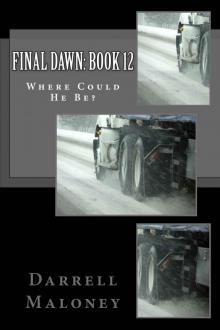 Final Dawn: Book 12: Where Could He Be?
Final Dawn: Book 12: Where Could He Be?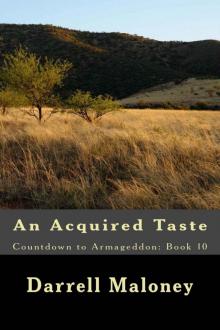 An Acquired Taste
An Acquired Taste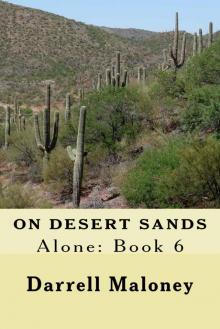 On Desert Sands: Alone: Book 6
On Desert Sands: Alone: Book 6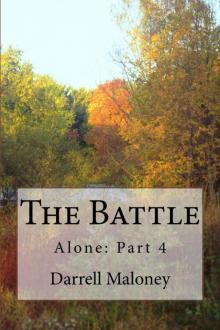 The Battle: Alone: Book 4
The Battle: Alone: Book 4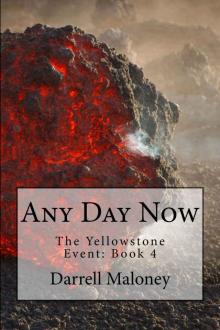 Any Day Now
Any Day Now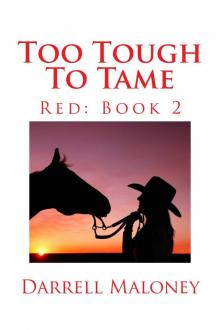 Too Tough To Tame: Red: Book 2
Too Tough To Tame: Red: Book 2 No Help From Austin: Red: Book 5
No Help From Austin: Red: Book 5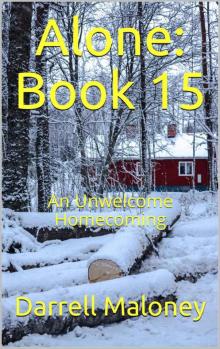 An Unwelcome Homecoming
An Unwelcome Homecoming A New Start: Final Dawn: Book 9 (Volume 9)
A New Start: Final Dawn: Book 9 (Volume 9)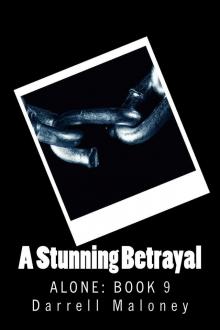 A Stunning Betrayal
A Stunning Betrayal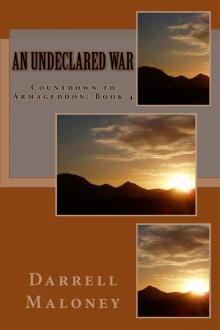 An Undeclared War (Countdown to Armageddon Book 4)
An Undeclared War (Countdown to Armageddon Book 4)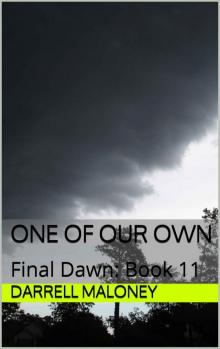 One of Our Own: Final Dawn: Book 11
One of Our Own: Final Dawn: Book 11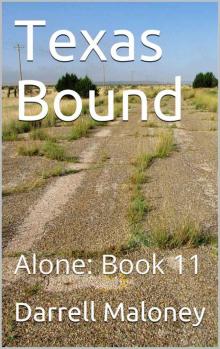 Texas Bound: Alone: Book 11
Texas Bound: Alone: Book 11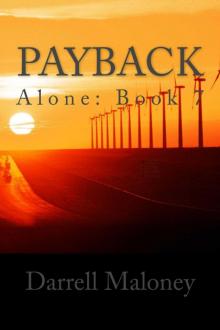 Payback: Alone: Book 7
Payback: Alone: Book 7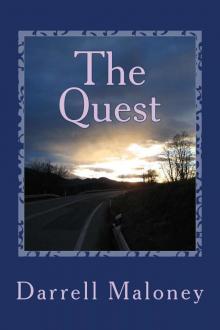 The Quest: Countdown to Armageddon: Book 6
The Quest: Countdown to Armageddon: Book 6 The Siege
The Siege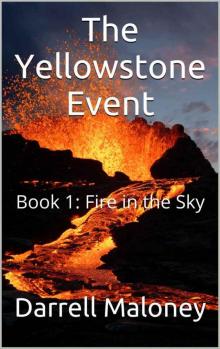 The Yellowstone Event: Book 1: Fire in the Sky
The Yellowstone Event: Book 1: Fire in the Sky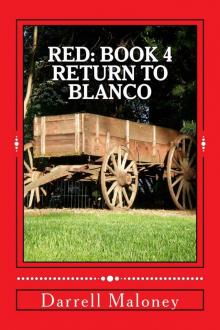 Return to Blanco (Red Book 4)
Return to Blanco (Red Book 4) The Search
The Search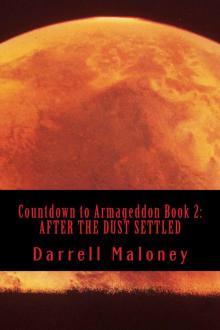 AFTER THE DUST SETTLED (Countdown to Armageddon Book 2)
AFTER THE DUST SETTLED (Countdown to Armageddon Book 2)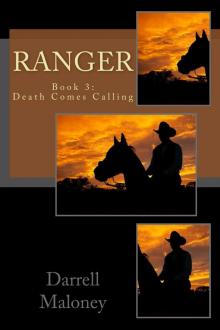 Death Comes Calling (Ranger Book 3)
Death Comes Calling (Ranger Book 3)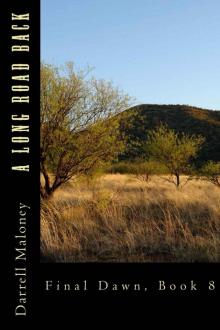 A Long Road Back: Final Dawn: Book 8
A Long Road Back: Final Dawn: Book 8